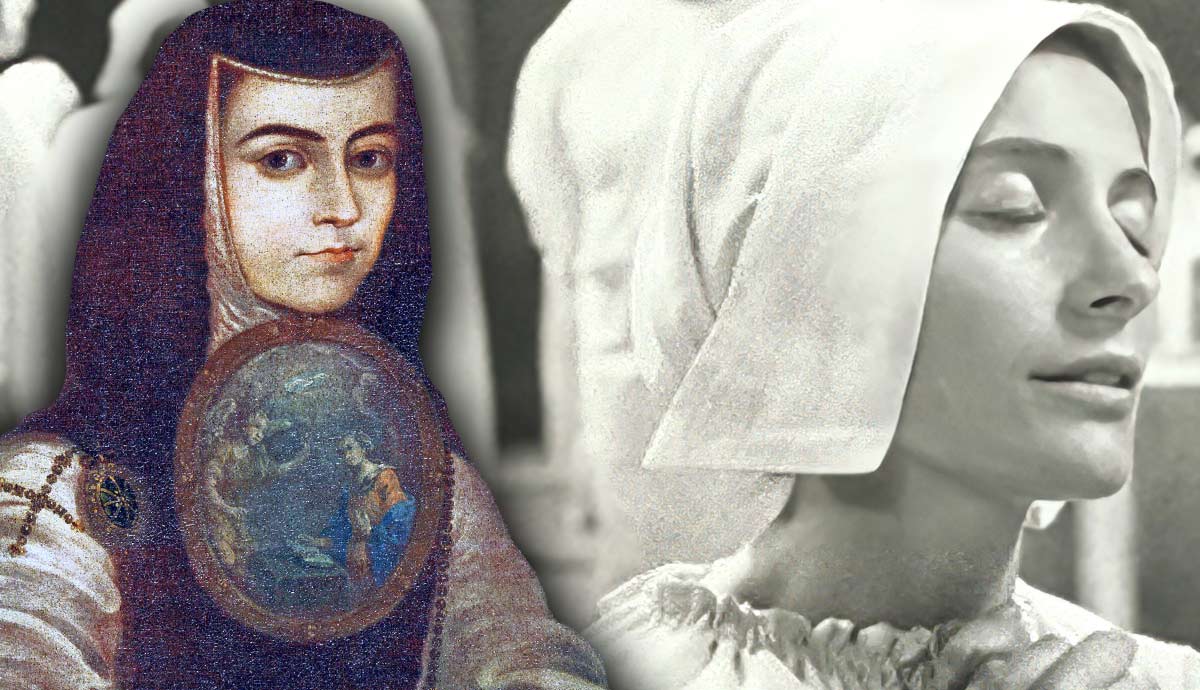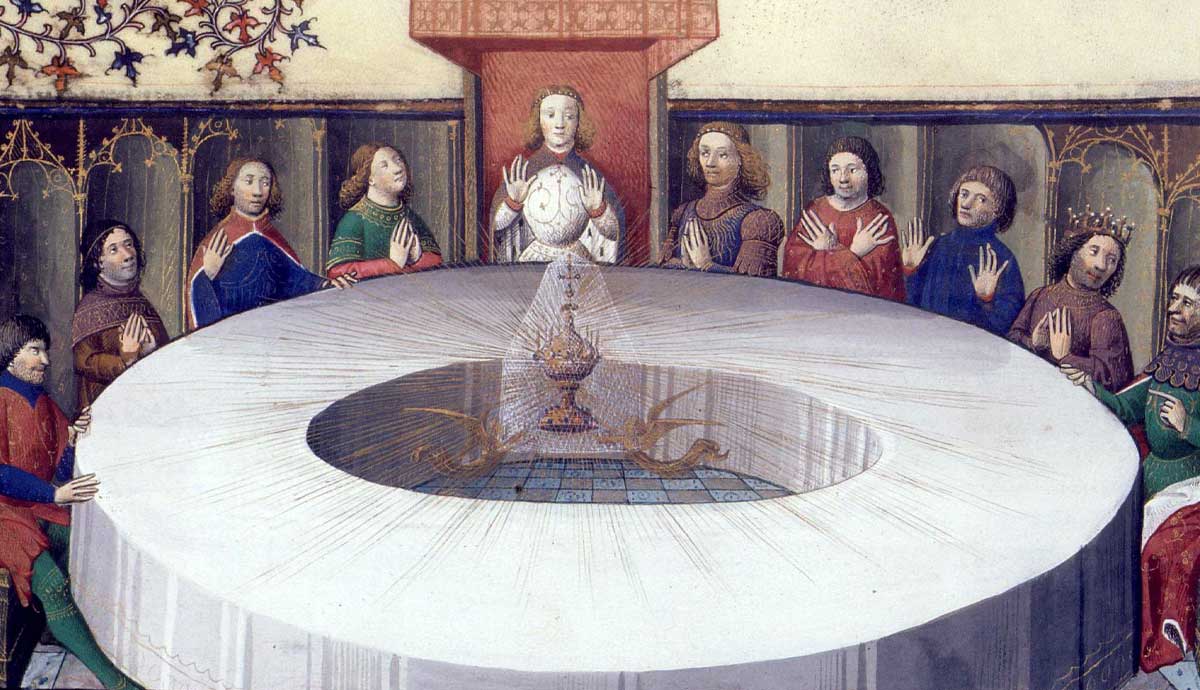
Sor Juana Inés de la Cruz, hailed as Mexico’s Tenth Muse, is among Latin America’s most celebrated nuns and female authors. A self-taught scholar, Sor Juana’s literary contributions are wide-ranging, from eloquent sonnets to popular villancicos, essays, and plays. Her erudition and wit earned her recognition in the elite circles of Mexico’s colonial society but did not ensure a trouble-free life. Sor Juana continuously faced strong opposition from the Catholic Church. Despite this, she left a huge literary legacy and is widely regarded as the first published feminist of the New World.
Childhood & Early Years

Sor Juana was born in 1948 or 1951 in the viceroyalty of New Spain (present-day Mexico) to Doña Isabel Ramirez de Santillana and Pedro Manuel de Asbaje, a captain from the Basque region of Spain. Sor Juana grew up in a single household and her father never recognized her as his legitimate daughter, a circumstance that presented a detriment in colonial Mexican society. The nun was acutely aware of this and went on to eloquently address it in one of her poems. To Sor Juana’s advantage, her mother held a respected position in society as an independent woman of entrepreneurial character, something that was not common in her time. In a feminist reconstruction of Sor Juana’s biography, Theresa A Yugar notes that her mother ran a hacienda by herself, modeling strength and independence to her daughters.
A child prodigy, Sor Juana demonstrated a thirst for knowledge from an early age and knew how to read by the age of 3. The nun claims to have followed her older sister to a school for young girls called “Amigas.” Since higher education was denied to women in 17th-century Mexico, Sor Juana had limited access to books as a young adult. In one of her essays advocating for women’s right to education, she describes how she would insist on dressing up as a boy to be able to attend a university in Mexico City.

At the age of 13, Sor Juana moved to Mexico City to live with her mother’s sister. This is where she entered higher society and gained admiration in elite circles. Her encounter and later friendship with the viceroy of Puebla and his wife marked the beginning of a new chapter in Sor Juana’s life, as their patronage afforded her the freedom to fully dedicate herself to intellectual pursuits and writing.
Convent Life & Relationship with the Church

At the age of 17, Sor Juana had to make a life choice: to enter the convent or marry. These were the only socially acceptable ways for a woman in 17th-century Mexico to protect her social status, economic security, and respectability. Sor Juana chose the convent and dedicated her life to learning, writing, and charity.
Why would Sor Juana choose convent life instead of securing herself through marriage?
Her decision was influenced by several factors. First, the convent was a place where she could access a library and continue her intellectual pursuits, which were limited for women outside the convent walls, and would not be possible as a married woman. Second, taking religious vows allowed her a degree of independence and self-reliance that was otherwise unavailable to women in her time. The Convent of San Jerónimo in Mexico City became a refuge for her to pursue her intellectual interests and protect her autonomy at the same time.

Life in the convent came with its own challenges. Although Sor Juana served the convent in numerous ways, her intellect was questioned and tested by male authorities throughout her life. This led to her engaging in intellectual debates and examinations with prominent scholars of the time. These exchanges not only showcased her scholarship but also brought her recognition as a respected scholar while precariously positioning her as an advocate for women’s education.
As a writer working across different genres and themes, her secular writings, in particular, garnered the discontent of clerical authorities. Sor Juana lived during an epoch when the Catholic Church held immense power and the Inquisition was active in colonial Mexico. Not surprisingly, the nun’s passionate pursuit of knowledge and expression of her ideas often put her at odds with the Church.
Advocacy for Women’s Education

Sor Juana’s defense of her right to pursue knowledge and self-expression was a point of conflict with ecclesiastical authorities throughout her life. Controversial writings that challenged established norms, such as women’s education and women’s right to engage in intellectual discourse, garnered scrutiny and criticism. Fortunately, Sor Juana enjoyed friendship and protection from the viceregal authorities, which had equal power in colonial Mexico, and little could be done to stifle her self-expression. Notably, Sor Juana shared a deep friendship with the viceroy and vicereine of Puebla, who helped publish her works in Spain. With their departure from New Spain, Sor Juana’s relationship with the Church became more challenging.
Sor Juana did not delay in responding. In her essay titled Respuesta a Sor Filotea de la Cruz (“Response to Sister Filotea of the Cross”), Sor Juana presents a trajectory of her life and the obstacles she needed to overcome in order to receive an education. She peppered her argument with the wisdom of great philosophers and biblical sources, avidly defending women’s right to education. Her essay is not only a testament to her erudition and argumentative abilities but also conveys a unique sense of humor. Noting her love for cooking, Sor Juana defends her natural “inclination to letters” wittily suggesting that “if Aristotle had cooked, he would have written a great deal more.” Amidst the challenges and criticisms she faced, Sor Juana courageously defended her “inclination to knowledge” as a gift from God that she could not resist. Her writings left an indelible mark on colonial literature, challenging the prevailing patriarchal norms of the era.
Secular Works & Feminist Themes

A prolific writer, Sor Juana’s literary repertoire includes plays, essays, and a wide array of secular works. She stands as one of the most prominent figures of the Hispanic Baroque and Spanish Golden Age literature. Sor Juana’s literary legacy speaks of her resilience as a woman writing under the scrutiny of ecclesiastical authorities. Among her notable works is “Primero Sueño,” a 975-line baroque poem translated into English as “First Dream,” an enigmatic and mystical poem, considered by many to be Sor Juana’s masterpiece. The poem, which describes the soul’s quest for knowledge as the body falls asleep, is a testament to Sor Juana’s imaginative prowess, erudition, and ability to navigate philosophical themes.
“El Divino Narciso,” one of her notable plays, reflects her deep engagement with theological and allegorical narratives. The play subtly blends Catholic and Aztec beliefs, a feature prominent in the Spanish-American baroque. In a more popular vein, Sor Juana authored numerous villancicos that she composed specifically to be sung in the cathedral. According to one of Sor Juana’s biographies, these villancicos not only celebrate women but also challenge patriarchal attitudes toward them, for example, this carol dedicated to St. Catherine of Alexandria, with whom she shared similar struggles.
Catherine bears the victory!
For with knowledge pure and holy
She’s convinced the learned men
And has emerged victorious
— with her knowledge glorious —
from their arrogance profane,
which would convince and conquer her.
But Catherine is the victor!
Other feminist themes imbue Sor Juana’s poetry. Her poem “You Foolish Men” is one of the most notable examples, largely interpreted as a criticism of the “hypocrisy of the relations between men and women in New Spain.”
You foolish men who lay
the guilt on women,
not seeing you’re the cause
of the very thing you blame;If you invite their disdain
with measureless desire
why wish they well behave
if you incite to ill.
Love Poems & Legacy

Sor Juana authored dozens of love poems, many of which were dedicated to the vicereine of Puebla—María Luisa Manrique de Lara y Gonzaga.
Much has been written about the nun’s friendship with the vicereine, hinting at Sor Juana’s homosexuality and her impossible love for María Luisa, the sole source for this speculation being Sor Juana’s poetry itself. Below is an excerpt from a poem Sor Juana dedicated to María Luisa, or Lysis, as she calls her.
My divine Lysis:
do forgive my daring,
if so I address you,
unworthy though I am to be known as yours.I cannot think it bold
to call you so, well knowing
you’ve ample thunderbolts
to shatter any overweening of mine.
Sor Juana concludes the poem with the following verses:
There are women more deserving,
yet in distance from heaven
the humblest of valleys
seems no farther than the highest peak.In sum, I must admit
to the crime of adoring you;
should you wish to punish me,
the very punishment will be a reward.
Taking into consideration Sor Juana’s religious vows as well as the societal norms of her time, it’s most likely that the relationship between the two women was strictly platonic.
Today, Sor Juana’s legacy lives on, making her one of the most celebrated authors, nuns, and feminist voices in the Latin American literary tradition. Chilean Maria Luisa Bemberg’s 1990 film, I, the Worst of All, brilliantly captures Sor Juana’s journey within the confining walls of the convent and her complex relationship with the Church. Inspired by Octavio Paz’s biography of Sor Juana, the title of the film alludes to a phrase with which Sor Juana signed documents toward the end of her life. Sor Juana’s last days were filled with the turmoil of having to give up her library containing thousands of books and musical and scientific instruments. Sor Juana died soon thereafter due to an epidemic that swept through the convent in 1695.

At the end of her life, Sor Juana fully dedicated herself to charitable activities within the convent. The San Jerónimo Convent where Sor Juana spent nearly three decades of her life has now been converted into the University of the Cloister of Sor Juana, which houses Sor Juana’s remains. A plaque accompanies the coffin, which roughly translates to “I want to see who kills me triumphant, and kill who wants to see me triumphant.”
References:
De la Cruz, Juana Inés (2014). Selected Works. (E. Grossman, Trans.). W.W. Norton & Company.
De la Cruz, Juana Inés (1988). A Sor Juana Anthology. (A.S. Trueblood, Trans.). Harvard University Press.
Yugar, Theresa A (2014). Sor Juana Inés de la Cruz: Feminist Reconstruction of Biography and Text. Wipf & Stock Publishers.










